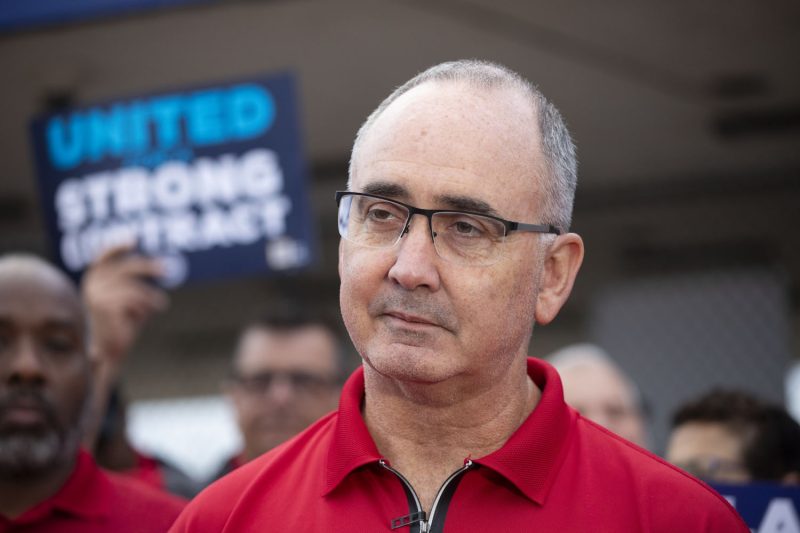In a recent development, the United Auto Workers (UAW) has decided to challenge the outcome of the union vote held at the Mercedes-Benz manufacturing plant in Alabama. The union has requested the National Labor Relations Board (NLRB) for a new election, citing various concerns regarding the fairness and conduct of the initial vote.
One of the primary issues raised by the UAW is the alleged interference and intimidation tactics employed by Mercedes-Benz and anti-union groups during the lead-up to the vote. According to the union, these actions created a hostile environment that may have influenced the outcome of the election. The UAW argues that workers were subjected to a campaign of misinformation and coercion, which undermined their ability to make an informed decision.
Additionally, the UAW claims that Mercedes-Benz violated federal labor law by engaging in unfair labor practices aimed at dissuading workers from unionizing. The union asserts that the company’s actions were a deliberate attempt to thwart the employees’ right to organize and collectively bargain for better wages, benefits, and working conditions.
Furthermore, the UAW has raised concerns about the neutrality of the third-party organization responsible for overseeing the election process. The union alleges that this organization failed to uphold its duty to ensure a fair and impartial vote, thereby compromising the integrity of the election.
In response to these allegations, Mercedes-Benz has maintained that it conducted itself in accordance with the law and respect for its employees’ rights to make a free choice regarding union representation. The company has expressed its commitment to engaging in open and transparent dialogue with its workforce and has emphasized its belief in the importance of maintaining positive labor relations.
Moving forward, the NLRB will carefully review the UAW’s request for a new election and assess the merits of the union’s claims. If the board determines that there were indeed significant irregularities that warrant a new vote, it may order a rerun election to ensure that workers have a fair and unbiased opportunity to decide on union representation.
Ultimately, the outcome of this dispute will have far-reaching implications not only for the Mercedes-Benz plant in Alabama but also for the broader labor movement in the United States. The case underscores the ongoing tensions between management and labor, as well as the complex dynamics at play in the realm of workplace organizing and collective bargaining.
As the NLRB deliberates on the UAW’s challenge, it will be essential to uphold the principles of fairness, transparency, and respect for workers’ rights. Regardless of the final decision, this case serves as a reminder of the ongoing struggle for labor rights and the need for vigilance in protecting the interests of working people across the country.

